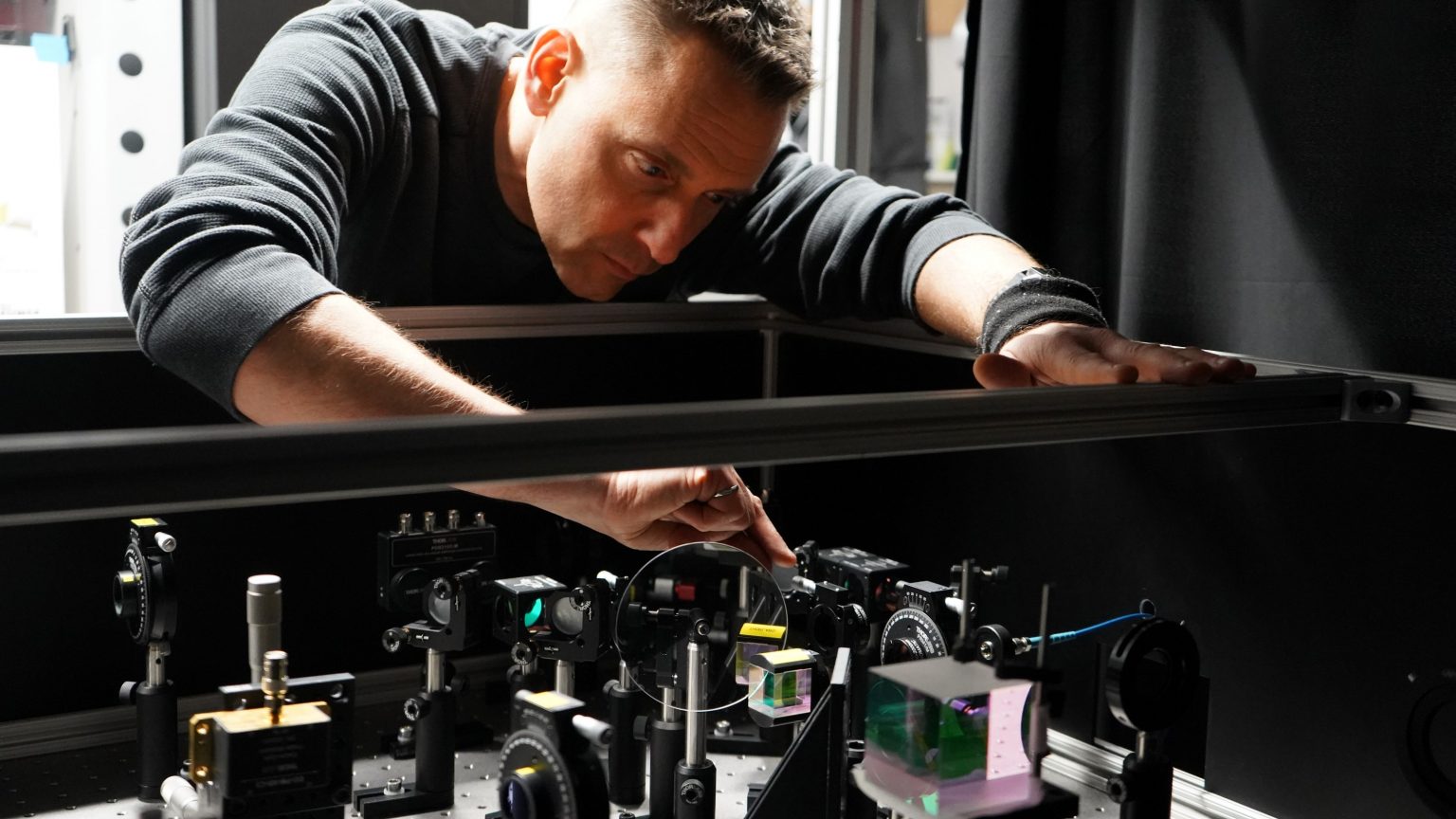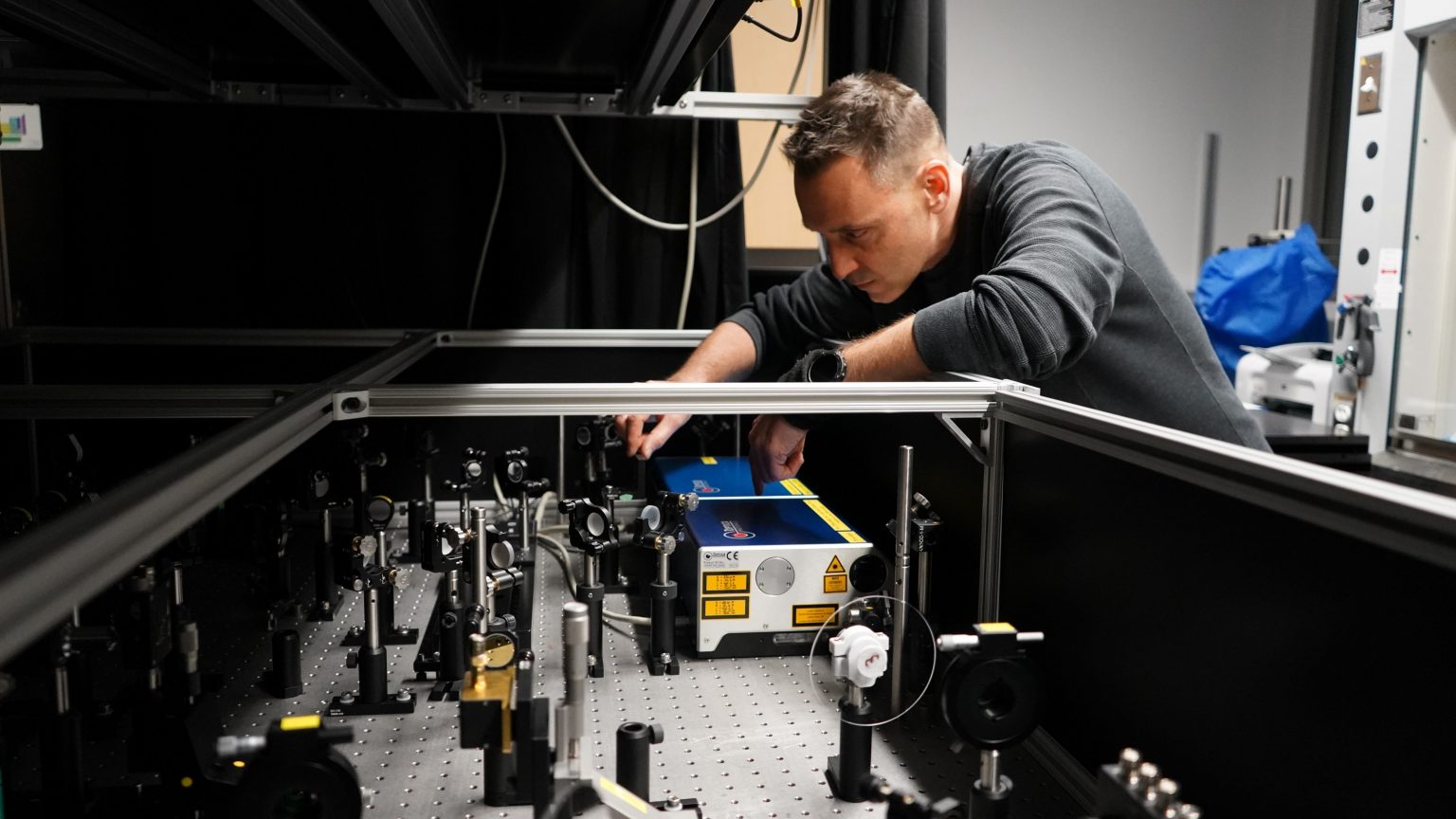
UBC Okanagan Engineering Professor Dr. Jonathan Holzman.
Dr. Jonathan Holzman is laser-focused on advancing the science of ground-to-satellite communication.
A professor of electrical engineering at UBC Okanagan, Dr. Holzman is leading an international research project that aims to make laser-based communication more secure. It does so by blending optical innovation with quantum computing.
Today, Dr. Holzman’s project – ReQON: Reconfigurable Quantum Optical Networking – received a boost. It is one of ten collaborative research projects between researchers in Canada and the UK to receive funding from NSERC and the United Kingdom Research and Innovation (UKRI).
The grants recognize innovative projects focused on advancing research in quantum sensing, detection and communications in both countries. To drive these efforts, Holzman’s research team received roughly $350,000 in funding and his collaborators in the UK, a research team led by Dr. Andrew Reeves at Durham University, received roughly £500,000.
“Laser-based communication (through free space) has become increasingly important when you consider the need for connectivity in rural and remote communities, where underground fibre optic cables are not feasible,” says Dr. Holzman “Satellite laser communication can bridge the gap in those situations, but it needs to be secure.”

That’s where he and his fellow researchers come into play, by upping the security of laser-based communication through quantum encryption to keep data safe.
“With this type of encryption in place, it becomes possible for us to monitor and control access to the data,” he says.
Dr. Holzman and his team are seeking to push the resilience of such networks, making them more pragmatic and more portable.
“Much of the quantum efforts in this area, to date, have made use of large-scale infrastructure. We are working to make this technology accessible on a smaller scale, so it can be applied in more challenging settings.”
“We’re excited and proud to be part of Canada’s push to advance quantum research, technology and innovation, and to be able to do so in collaboration with researchers across the globe.”
“Congratulations to Dr. Jonathan Holzman and his team, along with their colleagues at Durham, on receiving this significant investment in their groundbreaking collaborative work. Projects like these exemplify UBC Engineering’s commitment to advancing quantum innovation in Canada and across the globe,” said UBCO School of Engineering Director Dr. Will Hughes.
In addition to the chance to put UBC and Canada at the forefront of quantum innovation, for Dr. Holzman, another rewarding aspect of the research lies in mentoring the next generation of innovators in optical networking.
Over the past few years, he and his graduate students have participated in tests of laser links from the Teide Observatory in the Canary Islands and an optical ground station near Munich, Germany, in partnership with the German Aerospace Center (DLR). The laser links were established out to geostationary orbit, over a distance of roughly 38,000 kilometres.
While his quantum project is focused on shorter-range communication, the added security measures he is pioneering could have far-reaching benefits in the long-term.
According to NSERC, each project in this round of funding was selected for its potential to support key elements and specific missions of Canada’s National Quantum Strategy and the UK National Quantum Strategy.
The grant recipients will have the opportunity to work closely with their international counterparts, sharing knowledge and resources to achieve their collective research goals.
Read more about the grants and the awarded projects.